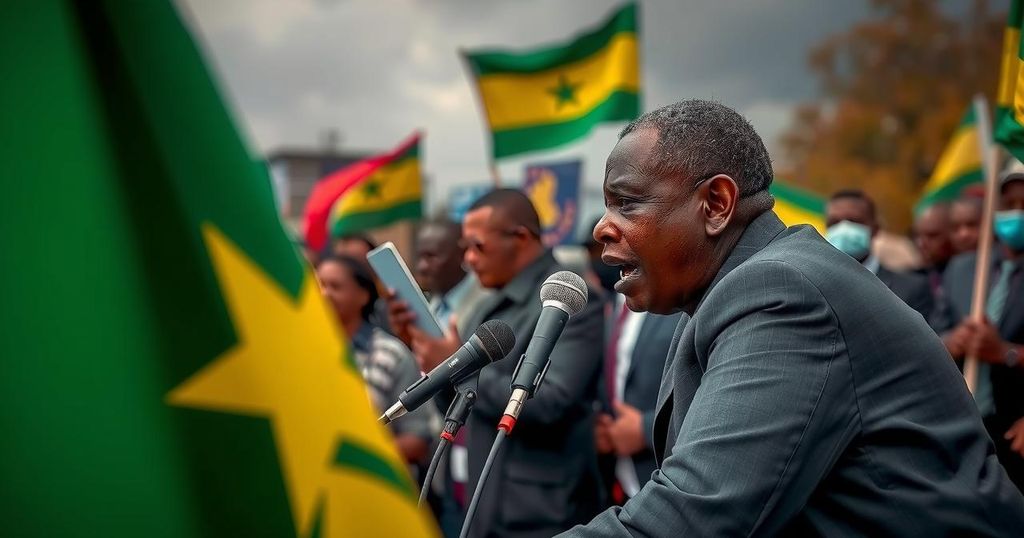Senegal’s tense electoral campaign culminates as the nation prepares for pivotal legislative elections. President Faye seeks a parliamentary majority to enact reforms after dissolving an opposition-led parliament. Recent violence among party supporters emphasizes the growing instability, with Ousmane Sonko and Faye’s prior imprisonments igniting unrest ahead of Sunday’s vote.
Senegal is concluding a tense electoral campaign as it approaches a crucial legislative election scheduled for Sunday. This election is pivotal in determining whether President Bassirou Diomaye Faye, who was elected in March on an anti-establishment platform, can implement his ambitious reform agenda. Currently, Faye’s party does not hold a majority in the National Assembly, which consists of 165 lawmakers. In September, Faye dissolved the opposition-led parliament to facilitate a snap legislative election, positioning his party against the Takku Wallu opposition platform, led by former President Macky Sall. The campaign period has been characterized by sporadic violence, including clashes among party supporters and the arson of an opposition party’s headquarters in Dakar, as reported by the Ministry of the Interior. Ousmane Sonko, a prominent opposition figure and prime minister who endorsed Faye, condemned the violence against his party’s constituents. He urged supporters to remain peaceful even after declaring their right to respond to attacks. Tensions escalated last month when Sonko’s vehicle was damaged, and his ally was injured during campaigning, underscoring the volatile political atmosphere. The recent presidential election was a litmus test for Senegal’s democratic stability amidst a backdrop of regional turmoil characterized by coups. Both Faye and Sonko emerged from a political amnesty shortly before the elections, following months of public unrest over their prior imprisonment and allegations against outgoing President Sall regarding a potential third term. As Senegal braces for this significant election, the outcome may have profound implications on the nation’s political landscape and reform efforts.
The legislative elections in Senegal are taking place amid significant political tension following the recent presidential elections. President Bassirou Diomaye Faye’s administration is seeking a parliamentary majority to enable the passage of key reforms aimed at curbing corruption and redistributing the country’s resources. The backdrop of these elections includes recent violence and political strife that has tested the democratic fabric of Senegal, a country previously known for its political stability in West Africa. Both Faye and opposition leader Ousmane Sonko have faced imprisonment, fueling public unrest and concern over the state of democracy in the region.
The last day of the electoral campaign in Senegal has spotlighted the fragility of the country’s democratic climate as it approaches a pivotal legislative election. With the potential for widespread implications on governance, the outcome will determine if President Faye can garner sufficient support to execute his reform agenda. The tensions and clashes characterizing this campaign serve as a reflection of the broader struggles within Senegal’s political landscape, raising questions about the future of governance and stability in the nation.
Original Source: apnews.com







